- Home
- Stephen Hunter
The Second Saladin Page 28
The Second Saladin Read online
Page 28
“Paul,” he had said, “come on. Let’s be reasonable, shall we?”
Chardy’s Arabian Nights, which were not 1001 in number but only six, were beginning to reassemble in his mind this night in his little apartment.
“It’s so difficult, this business,” said Speshnev. “I’d much prefer to be your friend. I really would. Will you please talk to me? Please, Paul.”
But Chardy would not talk. He remembered instructing himself: don’t give them anything. If you start, you will not stop. Don’t give them anything. The first surrender is the only surrender; it is total, it is complete. Time. Play for time.
He studied the cell. Down here, the walls sweated. The air was moist, almost dense. This room had probably been cut from living stone a thousand years ago, by slaves. Who knew what pains it had witnessed? Had it always been a torture chamber?
“Paul, let me explain how it works. I’m going to have them burn a hole in your back. The pain will be—well, it will be indescribable. But I think you can get through it. You are a very brave man. I think you can get through it. Then tomorrow, Paul, tomorrow, I’m going to have them burn another hole in your back. You’ll have all this evening to think about the hole they’re going to burn. You’ll know exactly what it’s going to feel like. There will be no surprises. Paul, the day after that, I will burn another hole. You’ll have a night to think about that one too. And on and on, Paul. On and on and on. If we run out of back, then we’ll move to the chest. Do you understand? That is the future, Paul. That’s all the future there is.”
You can do it, he told himself. You can stand it, he told himself.
Oh, it’s going to hurt so. Oh, Christ, it’s going to hurt.
You can do it, you’re Chardy, you’re so tough. You’ve been begging for this one your whole life. To see how tough you are.
They burned the first hole in his back.
“Paul, it’s so absurd,” Speshnev told him on the second day. “What do you gain by resisting? We win in the end, of course. But think further: What do we win? Frankly, not much. We win a momentary advantage, a half a point’s shift in momentum. Perhaps I win a promotion, or at least advance a few inches closer to promotion. And what of it? Is the world really changed? Is one system that much better off than the other? Of course not Let’s face facts: our two nations face each other on a thousand different battlefields, a thousand different contests each second. Some we win, some you win. But nothing really changes. The process of change is implacably slow and no human endeavor may be seen to affect it. So what sense does it make to resist us? None at all. It’s thoroughly ridiculous, an exercise in playground heroics. Now, in this cellar, you are being a hero, an authentic American hero, fighting the pain, the psychological pressure, fighting alone without help, without hope, standing against everything we can do to you. It’s incredible; it’s quite moving. You have my respect. I couldn’t have done nearly so well. I’d have cracked in the first session. I’d certainly have cracked by now. You are a champion. Paul, must I have them bum another hole in you? Must I? Will you force me?”
Chardy’s wrists were tied before him; he could see old stone and smell his own sour perspiration. He’d spent the night thinking about his back.
“Paul, please. Help me on this. We can work together.”
They burned the second hole in his back.
“How was your evening, Paul? The guards say you screamed all night. They say you woke several times with nightmares. I would imagine the psychological pressure is immense. I know this business weighs heavily on me as well. I hope we can finish it today and that you’re able to cooperate. What do you say, Paul? Do you think you’ll be able to help me?”
Chardy was silent; in his peripheral vision he could see Speshnev standing behind and beside him in his rumpled uniform.
“Paul, now let’s think about this. At this very moment an American from the IBM Corporation is selling a Russian from the Committee on Scientific Research highly sophisticated computer software whose intricacies are a thousand times more complex than you or I could ever understand. A traitor? No, it’s done in the open! Businessmen! With the support and endorsement of both governments. It’s simply trade. Also being sold are licenses for the bottling of Pepsi-Cola and the manufacture of Ford Pintos. In exchange we fork over tons of our desperately needed minerals, crude ore, and so on. So against this panorama of exchange, this Technicolor extravaganza of commercial greed, of ideological co-option, what can you expect to accomplish? Paul, be reasonable. You prevent one man, me, from becoming a full colonel. It’s really quite humorous, Paul. I wish you’d work with me on this.”
They burned the third hole in his back.
“Paul, they tell me you had a terrible evening. The guard says he thinks you did not sleep at all. And you do look feverish, Paul. Frankly, you look awful. You look terrible. I think yesterday I let them go too far. That wound is terrible. Paul, if you could see it you would be disgusted. And the flies. The flies must drive you insane. Paul! How much longer can you let this go on. You are destroying yourself!”
Chardy had given up, by this time, any idea of heroism. Courage had no meaning in a cellar among men with blowtorches. He’d quit caring for the Kurds; they could have the Kurds, they could have Ulu Beg and his band of lunatics. And the Agency—what good was it? They’d let him hang on ropes for three days now, in his own filth, in a cell with rats, a medieval place full of damp straw where other men screamed in the night, and his nightmares were huge and terrible and he could think of nothing but the torch.
“It’s not as if anybody cares,” Speshnev said. “Do you really think all those Ivy Leaguers care? I mean, think about it, Paul: have you been really satisfied with your treatment from them? Haven’t they always regarded you with contempt as some sort of working-class adventurer, just a shade above a mercenary? Do they even bother to conceal their superiority? Tell me if I’m not right: they all wear pinstripe suits and black shoes, don’t they? I’m right; I know I’m right. They seem to pad along. They wear those pink-rimmed glasses, plastic things. They all know each other, and each other’s fathers, and all went to the same schools. They play squash. They send their children to the same schools. They all live in the pleasanter Washington suburbs. McLean or Chevy Chase. They drink wine and know about French food. They speak a different language. And you terrify them. You scare the pants off them because you are one of those rare men with talent. How ordinary people hate talent! They despise it! It terrifies them! You have a talent for action, a will, a courage. They envy it fiercely and they hate you for it. Think about it, Paul. Be reasonable. Are those men worth suffering these torments for? Think about what I’m saying, Paul. They’ll leave you here to the next century. They have no capacity to imagine what you are undergoing. Paul. It would be so easy to tell me.”
And it would. Speshnev wanted the frequencies, the times of transmission, the code system of the radio linkup with the Kurds. It was so simple. The frequency was 119.6 MhK, nothing fancy at all, but the Kurdish receivers and the Agency transmitter in Rezā’iyeh were calibrated exceedingly fine so there was very little band waver going in or out. Radios were an Agency specialty. You had to be parked right in the groove to intercept and if Speshnev didn’t get the frequency he had no chance. The codes were easy too: Fred to Tom on the odd days, Tom to Fred on the even ones. It was so simple it was primitive, straight out of a World War II OSS handbook. He could tell Speshnev in ten seconds. He could be off the hook in ten seconds.
“Please don’t hurt me again. Please,” he said.
“You’ll cooperate?”
Chardy twisted on his ropes until he made eye contact with the Russian. He begged forgiveness with his eyes and the Russian responded.
“Don’t you understand?” Chardy said hoarsely, whispering. “I—I—just can’t.”
Johanna was among the Kurds. He’d have to give them Johanna and he would not.
They burned the fourth hole in his back.
By the fifth
day Speshnev was growing desperate. Chardy could hear him pacing in the cell, hear his boots scrunching on the straw.
Chardy tried to think of Johanna.
“The early burns are festering badly, Paul. There are maggots in them, and flies. The infection looks gruesome. The pus is something terrible, Paul. I’d like to get a doctor in here. I don’t know how you can stand the pain. The pain must be intense.”
He had never seen her naked. He never would see her naked. It had always been in a sleeping bag. He tried to imagine her naked. He tried to put her nakedness between himself and this room.
“Those flies can lay eggs, Paul, that get into your bloodstream. Your blood distributes them throughout your body. They hatch in odd places, Paul. They hatch in your lungs, in your toes, in your genitals, in your heart, in your brain. Paul, all those little insects in you, eating you up. All that corruption and filth spreading through your body, devouring you, absorbing you.”
Her breasts. He tried to imagine their heft and weight, the size of the nipples. He concentrated desperately.
“Paul, a little antibiotic and the problem is instantly taken care of. It’s just a pill, a shot, and modern medicine takes over, vanquishing the invaders. Or they eat and grow fat on your flesh, grow corpulent on your organs, Paul. And out there, eating you from this side, Paul, is the torch. Always the torch, Paul. The torch is here. Tell me, Paul, are you ready for the torch again? Paul, you are making it so hard on me. But you force me to do my duty. Help me, Paul. Let me save you from the torch and the insects, Paul. Help me.”
But Chardy was thinking of nothing else in this world except Johanna and could not help him. They burned the fifth hole in his back.
The Russian was desperate on the sixth day.
“Damn you, Paul! Damn you, Chardy, the codes! The codes, damn you. The frequencies.”
Chardy hung on the rope. Before him, the wall. He could hear the wheel of the cart as they brought the heavy acetylene torch in. He had never seen it, but he’d heard it bang against the walls, heard the squeak as its metal wheels rolled across the stone floor. He had no idea who was working the torch, who actually applied it, but for certain, whatever happened, happened at Speshnev’s direction.
He could hear them now adjusting the nozzle, could hear the soft turning of valves as the gas and oxygen mixed. He smelt the gas, as he always did, and he began to gag reflexively, to choke and twist on his ropes, to retch up food that wasn’t there.
“It’s here, Paul. The torch. It is once again the hour of the torch. Are you ready, Paul? The torch is here; he’s got it lit. Its flame is blue, Paul. Its pain is indescribable. He’s going to wait a second, adjust the flame.”
Chardy’s head lolled idiotlike on his chest. Drool played across his chin. Very little was real to him except the torch, whose approach he could feel all the way to his inmost cells. The rope cut into his hands. His fingers looked like blue sausages. Blood ran down his arms. He hung in his own waste.
“Paul, don’t make me debase you again! Don’t!”
Chardy fought them with his last weapon. It was his game. He tried to think of basketball. He tried to keep the game at the front of his brain. He tried to remember what he loved most about it: the pebbly feel of the ball as it came up to his hand on the dribble; the exultation that fired through his veins when a long one went in, especially late in the last period in a close game; the sheer fury, the physical ferocity of the struggle under the boards. He saw himself in a vast dark gym. He could not tell if there were fans in the seats or not, for he could not see. He could not make out the people he was playing against either: they seemed to be shadows, swatting at him, throwing their bodies at him. But he could see the hoop, the only spot of light in this great arena, an orange circle, crisp and perfect, its white net hanging beneath it. And he could not miss. He kept putting it in. He kept firing that ball up there and it kept going through. He could smell his own foul sweat, and exhaustion clouded his vision. His legs didn’t work and fatigue blurred the precision of his moves. He could get it in, though. He thought he could get it in.
“Paul, it’s working now. The torch is working now. We are ready. They tell me you screamed all night, Paul. You’re feverish, you’re in great pain. You’ve fought so hard. But you’re not going to make it. You are not going to make it, Paul. I’ve won. You knew I would. Paul, it’s a matter of time. It’s only a matter of time. The torch is ready.”
Chardy could hear two grunting men shove the thing over, hear the squeak of the wheels.
“Paul?”
“Please,” Chardy said. “Please don’t.”
“Are you ready, Paul?”
“Please. Help me. Don’t hurt me. I’m begging, oh, Jesus, I’m begging you. Don’t hurt me. Please. Don’t hurt me. Don’t hurt me.”
“Burn him.”
“No. No! PLEASE, OH, JESUS, PLEASE DON’T HURT ME! PLEASE! I’M BEGGING! OH, SHIT, I CAN’T TAKE IT! PLEASE!”
“You’ll talk then?”
Chardy hung on his ropes. He tried to pray. Dear God, spare me. Spare me, please, dear God. I pray to you, dear God, help me. Please, help me.
“Paul. Your answer?”
Chardy whispered.
“What? Louder, Paul. Louder.”
Chardy tried to find the words. His tongue caught in his throat. He could hardly see. He was so scared. He could feel his heart thumping.
“Yes, Paul? Yes?”
Chardy croaked, “I said, fuck you, cocksucker.”
They burned the sixth hole in his back.
Chardy lay in the ropes. How much time had passed? Pain-time or real time? Pain-time is different: longer. In pain-time, years, decades. In real time, maybe three hours. It was just night. He stared at the crumbling stone. He heard rats in the darker corners of the cell. He knew that tomorrow he would crack. It would be tomorrow. He was not even sure he could last the night.
He heard the cell door open. Off schedule. Were they going to give him his seventh day’s dosage now, and cheat him of the pleasures of brooding upon it? But he couldn’t turn to see. His neck barely worked.
Rough hands cut him down. He fell limbless to the straw. He was dragged toward light. They lifted him up.
“Ahhhhhhh!”
“His back, watch his back, you fool.”
“Yes, Agha.”
He seemed to sit.
“Get him some water.”
It was presented in an earthenware cup, held for him because his gray hands would not work. He felt the rough texture of the vessel with lips and tongue as the water sweetly entered him.
“Enough.”
The water was taken away. “Paul? Can you hear me?”
Chardy could not focus. He squinted and recognized the voice. He could almost see the face and then it swam into clarity. The Russian peered at him intently.
Chardy smiled stupidly, feeling the skin of his lips crack and split. A tooth fell out. His head lolled forward; he raised it again. He shook his head.
“Paul, listen to me. We’ve captured another Kurd from Ulu Beg’s group. A deserter. We broke him with the torch just minutes ago.”
Chardy thought about it. He almost passed out. More water was poured into his mouth, until he almost choked.
“I—I—I’m the only one who knows the fre—fre—fre—”
“Frequency, Paul. Frequency.”
“Frequency.”
“Paul, he didn’t have to tell us about the frequency or the codes. He told us enough. He told us about the woman.”
Chardy stared groggily at the man. His back fired off on him, curling him in a spasm of pain.
“Jo—Jo—Jo—?” he began weakly.
“Yes. Listen carefully. Here it is, a one-time-only offer. I’m not going to give you much time. You’ve got about thirty-seconds. Paul, either give us the information or I swear to you, I’ll bring you her head. If you talk, maybe we can get her out. We can try, at any rate. She’s beyond anybody else’s help. The Agency can’t help her. T
he Iranians can’t. She’s with his group and we’re closing in and we’ll have them in a matter of days, a week at the most. Only one man can help her, Paul. You, Paul. You decide, Paul. Does the woman live or die? You tell me, Paul, or I swear that within the week, in this very chamber, I will hand you her head. I’ll take it from her myself.”
Chary had begun to cry. He found the strength to lift his hands to his eyes to shield his shame. Fat tears fell onto his filthy body and ran into the straw. He choked on them.
“Paul. Ten seconds.” Speshnev stood.
Chardy fought for his strength as he watched the Russian go toward the light. He felt himself slipping into the straw. He watched the others join Speshnev at the door and begin to file out. Speshnev pulled the heavy door closed behind him.
“No,” screamed Chardy. “No. God help me. God help them all. God forgive me. No. No. No.”
“There, there, Paul,” he heard the Russian crooning, as he lifted Chardy’s head gently from the straw. “It’s going to be all right. You’re being reasonable at last.”
They cleaned him quickly after he told them, and shot him full of pain-killer. The rest he remembered poorly. They took him up several floors to some kind of operations center. He sat at a Soviet artillery radio, an older model. It had evidently already been adjusted to proper frequency. Several technicians hovered about and he could tell that his condition shocked them. He almost passed out twice. The radio crackled.
“What do you want me to say?”
Speshnev told him about the helicopters, and Chardy told Ulu Beg, and then they gave him some more pain-killer and he went to sleep.

 Point of Impact
Point of Impact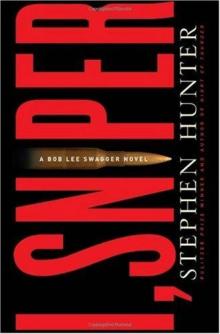 I, Sniper
I, Sniper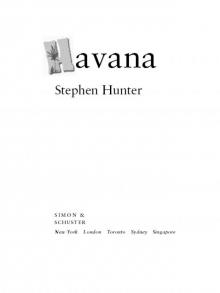 Havana
Havana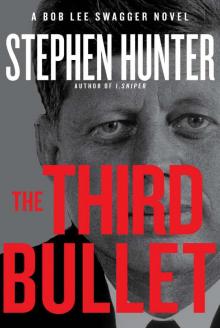 The Third Bullet
The Third Bullet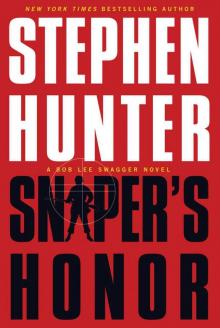 Sniper's Honor: A Bob Lee Swagger Novel
Sniper's Honor: A Bob Lee Swagger Novel Dirty White Boys
Dirty White Boys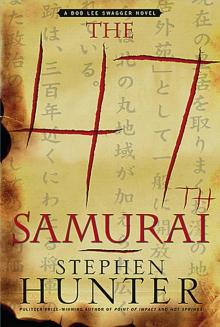 The 47th Samurai
The 47th Samurai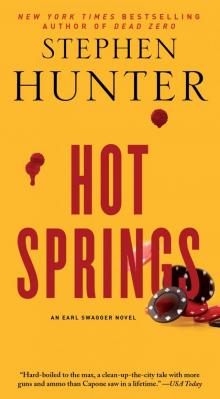 Hot Springs
Hot Springs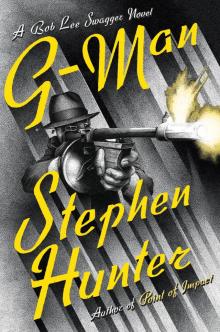 G-Man
G-Man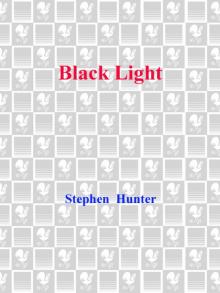 Black Light
Black Light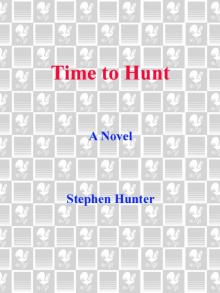 Time to Hunt
Time to Hunt The Day Before Midnight
The Day Before Midnight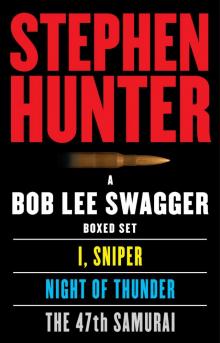 A Bob Lee Swagger Boxed Set
A Bob Lee Swagger Boxed Set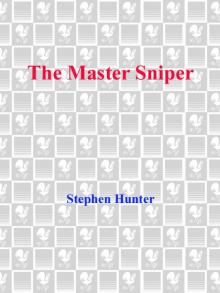 The Master Sniper
The Master Sniper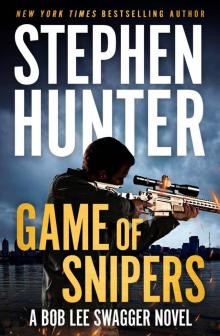 Game of Snipers
Game of Snipers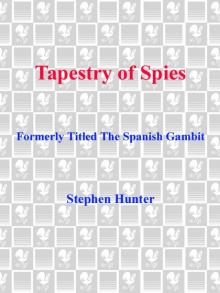 Tapestry of Spies
Tapestry of Spies Citadel
Citadel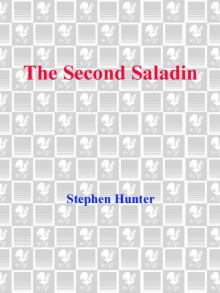 The Second Saladin
The Second Saladin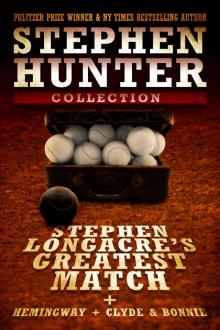 Stephen Longacre's Greatest Match
Stephen Longacre's Greatest Match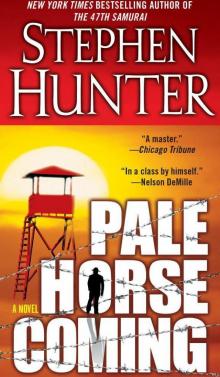 Pale Horse Coming
Pale Horse Coming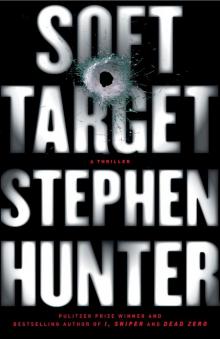 Soft Target
Soft Target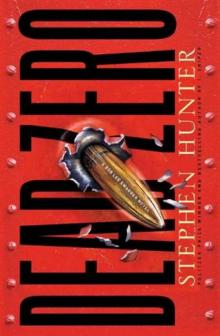 Dead Zero
Dead Zero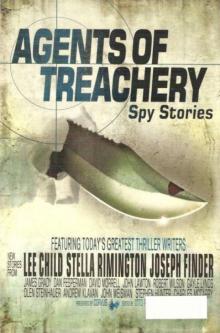 Casey at the Bat
Casey at the Bat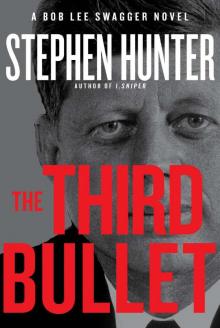 The Third Bullet bls-8
The Third Bullet bls-8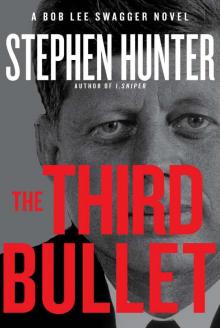 The Third Bullet: A Bob Lee Swagger Novel
The Third Bullet: A Bob Lee Swagger Novel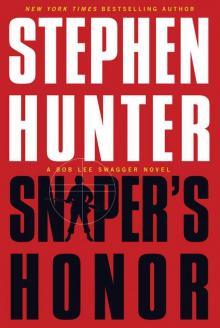 Sniper's Honor
Sniper's Honor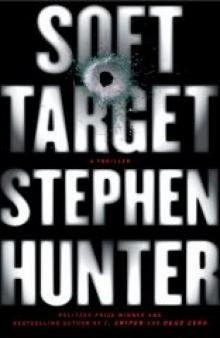 Soft target rc-1
Soft target rc-1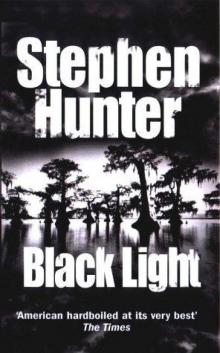 Black Light bls-2
Black Light bls-2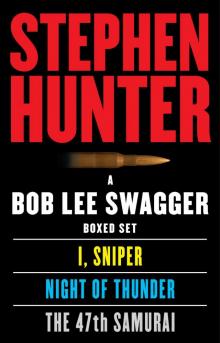 A Bob Lee Swagger eBook Boxed Set: I, Sniper, Night of Thunder, 47th Samurai
A Bob Lee Swagger eBook Boxed Set: I, Sniper, Night of Thunder, 47th Samurai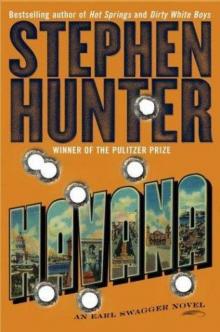 Havana es-3
Havana es-3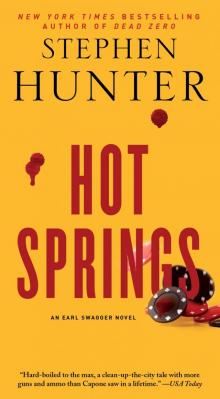 Hot Springs (Earl Swagger)
Hot Springs (Earl Swagger)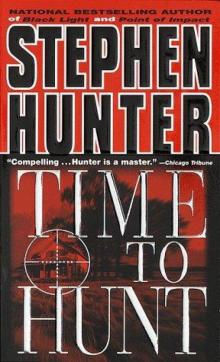 Time to Hunt bls-1
Time to Hunt bls-1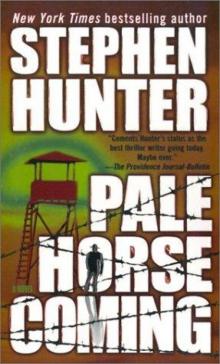 Pale Horse Coming es-2
Pale Horse Coming es-2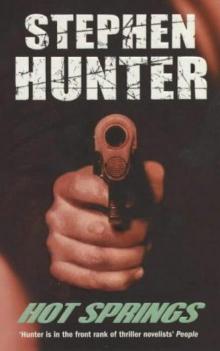 Hot Springs es-1
Hot Springs es-1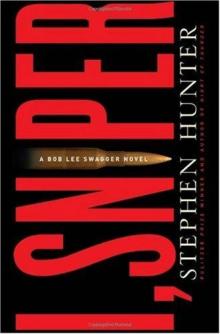 I, Sniper: A Bob Lee Swagger Novel
I, Sniper: A Bob Lee Swagger Novel